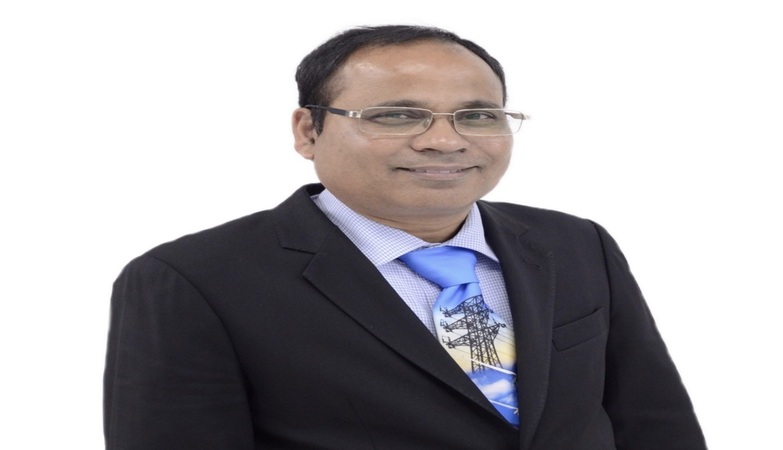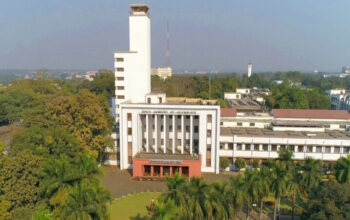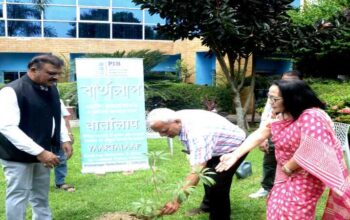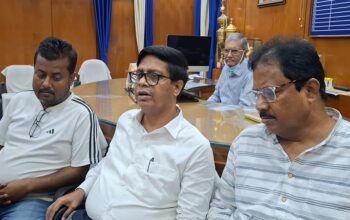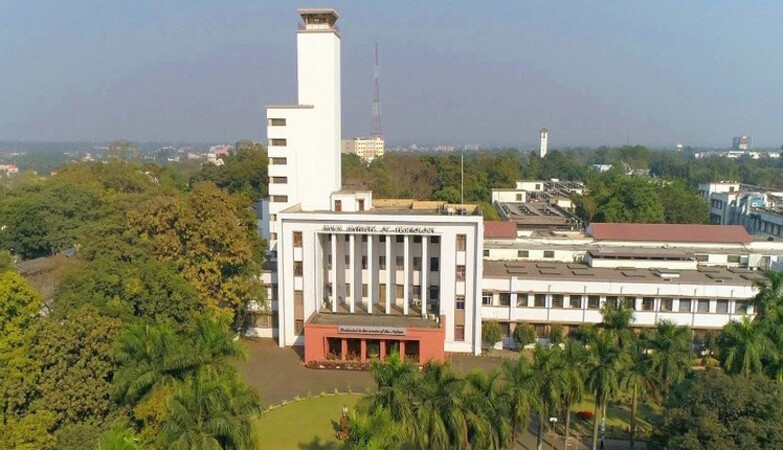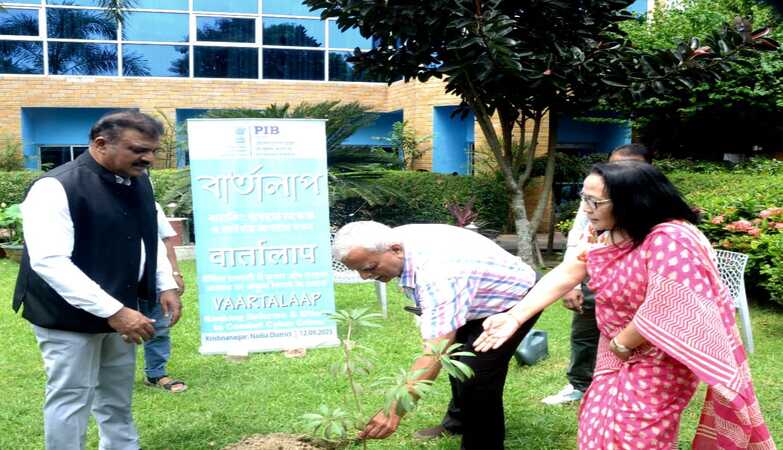Biswabrata Goswami
MIDNAPORE, 12 OCT: In the quiet village of Kismat Rajpura, nestled in the red soil of Kharagpur block in West Midnapore, few could have imagined that a boy from a subsistence farming family would one day rise to lead the world’s largest professional body of power engineers.
Yet, Prof. Bikash Pal — a name now synonymous with excellence in electric power systems — has done just that. The Imperial College London academic has been elected President-Elect (2026–2027) and subsequently President (2027–2028) of the IEEE Power and Energy Society (PES), becoming the first-ever Indian-born power engineer and the first from Europe and Africa in the society’s 140-year history to hold this position.
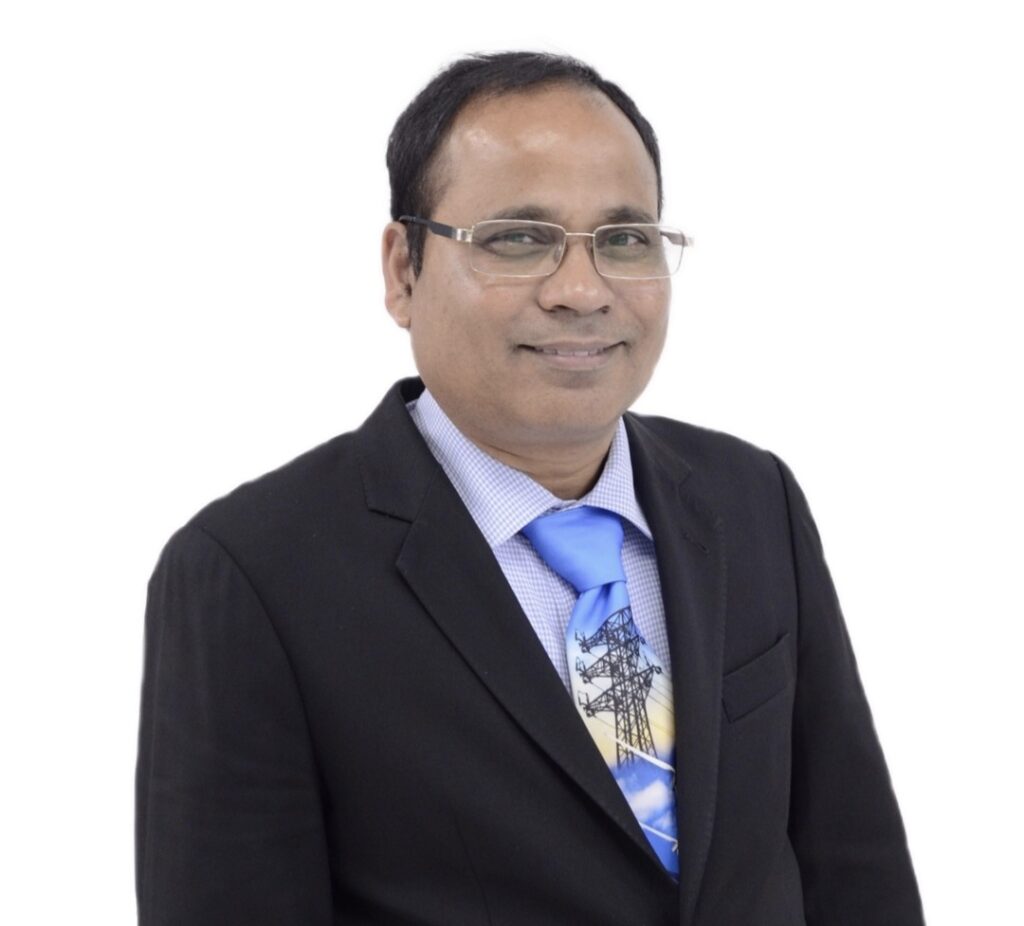
Out of three global candidates, Prof. Pal secured the majority vote from over 30,000 members of the IEEE PES, marking a moment of immense pride not only for India but for the global engineering fraternity.
Founded in 1884 by none other than Thomas Alva Edison, the IEEE Power and Energy Society traces its roots to the American Institute of Electrical Engineers (AIEE) — the forerunner of the modern Institute of Electrical and Electronics Engineers (IEEE). Today, IEEE PES connects nearly 40,000 professionals worldwide, advancing innovation in electric power infrastructure, renewable energy systems, and sustainable technologies. It is also responsible for setting global standards that guide equipment design, grid operation, and energy management.
The IEEE’s most distinguished recognition — the grade of Fellow — is reserved for the top 0.1% of its membership each year, honouring those whose work has significantly advanced technology for humanity. Prof. Pal belongs to this elite circle, standing alongside some of the most influential engineers in the world.
Prof. Pal’s long association with the IEEE PES began in 2000 when he started as a research article reviewer. His dedication and leadership were quickly recognised — he became an Editor in 2010, and by 2012, he was appointed Editor-in-Chief of the IEEE Transactions on Sustainable Energy, where he steered the publication for six years.
Under his editorial leadership, the journal became a beacon for global research in clean and renewable energy, ensuring rigorous scientific dissemination at a time when the world’s attention was turning towards sustainable solutions.
In 2019, Prof. Pal was elevated to the position of Vice President of Publications for IEEE PES — overseeing a vast portfolio of international periodicals and leading a team of over 600 editors, including 72 women editors, in what has been described as one of the most inclusive and high-performing editorial networks in the IEEE’s history.
During his tenure, he launched two new flagship journals — one focusing on electricity markets and another open-access journal in power engineering — significantly expanding the Society’s global outreach. His efforts reinforced IEEE PES’s reputation for publishing the highest-quality research in the power and energy domain.
Beyond his technical and editorial achievements, Prof. Pal has been a pillar of mentorship in the international engineering community. Over his 25 years of voluntary service, he has supported countless young professionals in both academia and industry — writing references for hundreds of engineers applying for the U.S. Green Card under the National Interest Waiver (NIW) route and helping many establish careers that contribute to national and global energy resilience.
Prof. Pal’s journey from the rural heartlands of West Midnapore to Imperial College London reads like an inspiring odyssey of perseverance, intellect, and service. Educated first at Muksudpur Primary School, Muksudpur Junior High School, Changrachak Jagadish Smriti Vidyapith, and Dasagram S.S. Sikshasadan, he went on to complete his undergraduate degree at Jadavpur University and postgraduate studies at the Indian Institute of Science (IISc), Bangalore.
As a Commonwealth Scholar, he pursued his Ph.D. at Imperial College London, one of the world’s top engineering institutions, where he later joined as a faculty member in 2001. Today, he serves as a Professor of Electric Power Systems, and is a Fellow of the IEEE, The Royal Academy of Engineering (UK), The Chinese Society of Electrical Engineers, and The Indian National Academy of Engineering (INAE) — a rare collection of honours that few global engineers share.
Despite his towering global stature, Prof. Pal has never forgotten his humble beginnings. Through the Kajalbabu Memorial Trust, which he founded in Midnapore, he provides educational support to poor and meritorious students in the district — nurturing the next generation of minds who, like him, may one day bridge the gap between rural aspiration and global achievement.
Prof. Bikash Pal’s election as the next global leader of IEEE PES is more than a personal milestone — it is a symbol of India’s growing contribution to world science and engineering. In an era where the transition to clean, reliable, and equitable energy is central to global progress, his leadership promises to blend technical excellence, inclusivity, and humanitarian vision — qualities that have defined his career from the very beginning.
As the power grids of the future evolve towards smarter, greener, and more resilient forms, Prof. Pal’s journey — from the red fields of Midnapore to the corridors of Imperial College — stands as a glowing testament to the power of education, determination, and the relentless pursuit of service through science.

